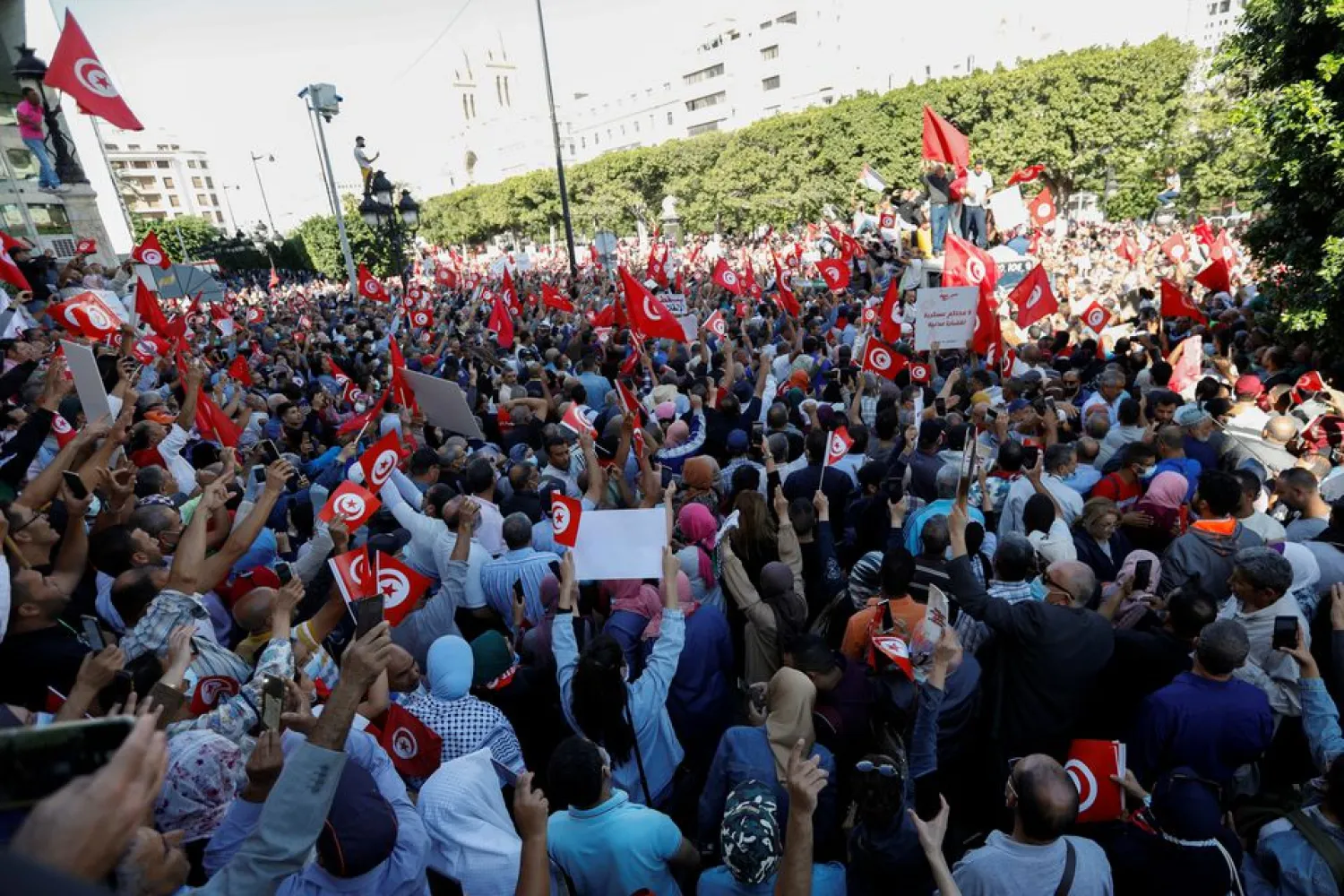Thousands of Tunisians opposing President Kais Saied's seizure of almost total power protested in the capital on Sunday as a very heavy police presence tried to stop them advancing along the central Habib Bourguiba Avenue.
A week after thousands demonstrated in support of Saied, the growing number of protesters on each side raises the possibility of Tunisia's political divisions spiraling into street confrontations between the two camps.
"We will not accept the coup. Enough is enough," said Yassin ben Amor, a protester. Police blocked the march without violence, as some demonstrators threw plastic bottles.
Saied dismissed the prime minister, suspended parliament and assumed executive authority in July in moves his foes call a coup. Last month he brushed aside much of the constitution, which he said he would appoint a committee to amend, adding that he could rule by decree.
His intervention has cast into doubt the democratic gains made by Tunisians during a 2011 revolution.
He has appointed Najla Bouden Romdhane as prime minister, but she has not yet named a government, an important precursor to any efforts to resolve Tunisia's looming crisis in public finances, though Saied said on Saturday she would do so soon.
Saied said he would initiate a dialogue with the Tunisian people and youth representatives, particularly from the regions, over the future during a meeting on Saturday with interim interior minister Ridha Gharsalaoui.
Interior Ministry spokesman Khaled Hayouni said the police would deal with protesters from both sides in the same way.
"The Tunisian police is a republican police and it does not intervene in any political side," he said.
Any dialogue that does not include major political parties or other established elements of civil society, such as the powerful labor union, would likely prompt more open opposition to his moves.
Western donors, needed to avert a collapse in Tunisia's public finances, have called for an inclusive process to end the crisis period, along with a clear timeline.









